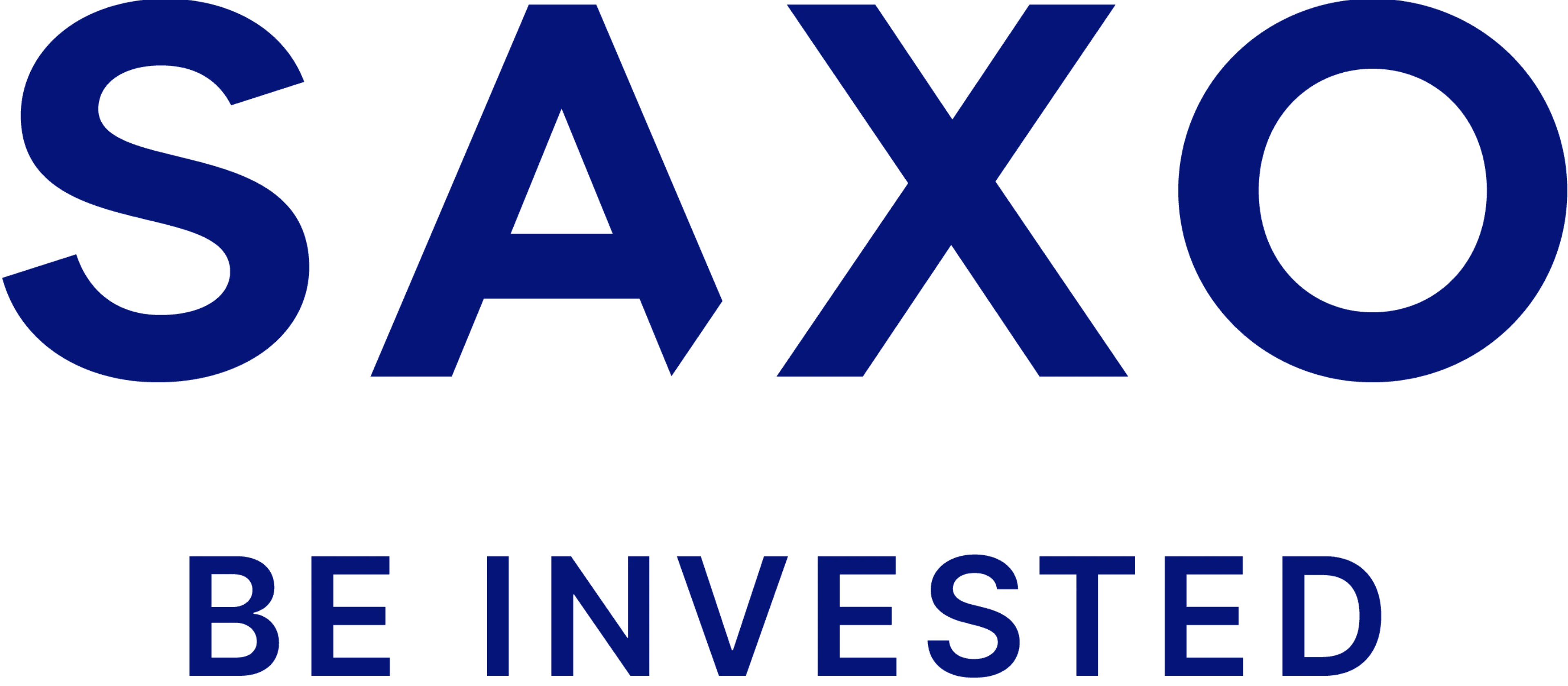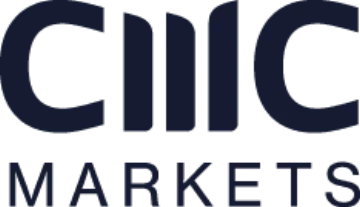Best Forex Brokers in Singapore 2026
Updated: 21 Jan 2026
- Trade over 2,000 contracts for difference (CFDs) across a wide range of financial products, such as indices, forex, shares, commodities and more.
- Every instrument gives different TPoints (Trader Points) based on the amount traded.
- No withdrawal and deposit fees
- Free real-time price quotes
- Web and mobile platforms available for added flexibility
- Demo account available for practice and experimentation
- Licensed by MAS
- Singapore's #1 in client satisfaction* By overall satisfaction, Investment Trends 2023 Singapore Leverage Trading Report
- Monthly fee of US$10 after 3 months of inactivity
- Guaranteed stop order type is subjected to a wider spread
- Overnight funding and currency conversion fees apply
In providing the above information, SingSaver is carrying out introducing activities on behalf of financial advisers. SingSaver is not to be construed as in any way engaging or being involved in the distribution or sale of any financial product or assuming any risk or undertaking any liability in respect of any financial product. Neither singsaver.com.sg or the content on it is intended as securities brokerage or investment advice, as an offer or solicitation of an offer to sell or buy, or as an endorsement, recommendation or sponsorship of any company, security or fund. The content on singsaver.com.sg is for general information purposes only and does not review or include all available companies, products or offers. SingSaver may receive compensation from the brands providing the offers or services appearing on this website. Remember that CFDs are a leveraged product and can result in the loss of your entire capital. Trading CFDs may not be suitable for some investors. Please ensure you fully understand the risks involved. The listed provider is licensed and regulated by the Monetary Authority of Singapore. This advertisement has not been reviewed by the Monetary Authority of Singapore.
- State-of-the-art trading platform with intuitive deal tickets, risk management tools, price alerts and expert insights
- Trade global CFD markets offered across thousands of asset classes
- Market-leading spreads on major indices from 0.3 points
- Min. commissions on US stocks from 1.5c per share (min. S$8) and SG stocks from 0.08% (min. S$10)
- Monthly cash rebates, referral rewards and new trader bonuses
- Extended hours trading on 150+ major US stocks
- Web and mobile traidng platform available, connectable with MT4 and TradingView
- Part of the StoneX Group Inc., a Fortune 100 financial giant with a proven track record of financial services and transparency
- 24/5 client management support (Message, hotline, email)
- Licensed and regulated by MAS, NFA, CFTC, CIRO, CySEC, CIMA, FCA, SFC, FSA, ASIC
In providing the above information, SingSaver is carrying out introducing activities on behalf of financial advisers. SingSaver is not to be construed as in any way engaging or being involved in the distribution or sale of any financial product or assuming any risk or undertaking any liability in respect of any financial product. Neither singsaver.com.sg or the content on it is intended as securities brokerage or investment advice, as an offer or solicitation of an offer to sell or buy, or as an endorsement, recommendation or sponsorship of any company, security or fund. The content on singsaver.com.sg is for general information purposes only and does not review or include all available companies, products or offers. SingSaver may receive compensation from the brands providing the offers or services appearing on this website. This advertisement has not been reviewed by the Monetary Authority of Singapore.
- Trade 13,000+ markets on Singapore's No.1 CFD/FX broker (By total client relationships. Investment Trends 2022 and 2023 Singapore Leverage Trading Report)
- Trade contracts for difference (CFDs) across a wide range of financial products, such as indices, forex, shares, commodities and more
- Take greater control over your dealing with built-in access to advanced 3rd-party platforms such as TradingView, MT4, and ProRealTime
- No min. deposit required
- Trade with low spreads – from as low as 0.1 on indices, 0.6 on forex, 0.3 on commodities, and 0.10% on shares.
- Get rewarded monthly with cash rebates straight into your trading account when you trade more than S$10 million in notional value. For more details, refer here
- Practice trading with S$200,000 virtual funds on a demo account
- Read our full review of IG
- Min. commission fee of S$10
In providing the above information, SingSaver is carrying out introducing activities on behalf of financial advisers. SingSaver is not to be construed as in any way engaging or being involved in the distribution or sale of any financial product or assuming any risk or undertaking any liability in respect of any financial product. Neither singsaver.com.sg or the content on it is intended as securities brokerage or investment advice, as an offer or solicitation of an offer to sell or buy, or as an endorsement, recommendation or sponsorship of any company, security or fund. The content on singsaver.com.sg is for general information purposes only and does not review or include all available companies, products or offers. SingSaver may receive compensation from the brands providing the offers or services appearing on this website. This advertisement has not been reviewed by the Monetary Authority of Singapore.
- Trade over 70 FX pairs, starting at 0.6 pips
- Trading Products: CFDs in FX, Indices, Metals, Commodities, and Bonds
- Rate ® data currency calculator: See real-time rates for major FX pairs (also comes with 25 years' of historical data across 38,000 FX pairs)
- fxTrade platform is available for web, desktop, and mobile
- MetaTrader4 (MT4) platform available
- Analyse price trends with candlesticks charts that refresh every 5 seconds
- Convenient depositing of funds into OANDA account with PayNow
- Read our full review of Oanda
- Currency conversion fee: 0.5 % mark-up/down on the midpoint price of the applicable currency at the time of conversion
- Inactivity fees apply
- Limited tradable products
In providing the above information, SingSaver is carrying out introducing activities on behalf of financial advisers. SingSaver is not to be construed as in any way engaging or being involved in the distribution or sale of any financial product or assuming any risk or undertaking any liability in respect of any financial product. Neither singsaver.com.sg or the content on it is intended as securities brokerage or investment advice, as an offer or solicitation of an offer to sell or buy, or as an endorsement, recommendation or sponsorship of any company, security or fund. The content on singsaver.com.sg is for general information purposes only and does not review or include all available companies, products or offers. SingSaver may receive compensation from the brands providing the offers or services appearing on this website. This advertisement has not been reviewed by the Monetary Authority of Singapore.
- 185+ currency pairs available for Forex traders from 0.5 pips, no commission charged and earn cash rebates `
- Access 8,500+ stock and ETF CFDs with tight spreads, low commission and cash rebates
- Demo account available for practice or experimentation
- No inactivity fee levied
- Read our full review of Saxo Markets
- Popular
- Annual custody fee of up to 0.12% charged for accounts with Stocks, ETFs/ETCs or Bond positions opted out of Securities lending. No custody fee for account plans opted into Securities Lending. Learn more here.
In providing the above information, SingSaver is carrying out introducing activities on behalf of financial advisers. SingSaver is not to be construed as in any way engaging or being involved in the distribution or sale of any financial product or assuming any risk or undertaking any liability in respect of any financial product. Neither singsaver.com.sg or the content on it is intended as securities brokerage or investment advice, as an offer or solicitation of an offer to sell or buy, or as an endorsement, recommendation or sponsorship of any company, security or fund. The content on singsaver.com.sg is for general information purposes only and does not review or include all available companies, products or offers. SingSaver may receive compensation from the brands providing the offers or services appearing on this website. This advertisement has not been reviewed by the Monetary Authority of Singapore.
- Extensive range of product catalog where clients are able to trade up to 12,000 instruments
- Access to award winning trading platforms with rich, highly customisable features such as an advanced order panel
- No withdrawal fees
- No min. deposit required
- Free demo account available for practice
- Min. commission fee of S$10
CMC Markets Singapore Pte. Ltd. Co. Reg. No./UEN 200605050E ("CMC Markets"). Regulated by the Monetary Authority of Singapore (CMSL No: 100063). See risk warning/disclosures and other important information (including the applicable terms of business) at our website: Home. Singsaver is our paid affiliate marketing partner.
The Information provided is not to be regarded as an offer, a solicitation or an invitation to deal in any investment product or an advice or a recommendation with respect to any investment product, and does not have regard to the specific investment objectives, financial situation and particular needs. Contracts for Difference (“CFDs”) are leveraged products and carry a high level of risk to your capital as prices may move rapidly against you. Losses can exceed your deposits and you may be required to make further payments. Countdowns carry a level of risk to your capital as you could lose all of your investment. Invest only what you can afford to lose. These products may not be suitable for all clients therefore ensure you understand the risks and seek independent advice. This advertisement has not been reviewed by the Monetary Authority of Singapore.
- Trade US Stocks and ETFs at only S$0.88 per order. T&Cs apply.
- Access stocks, but also options, CFDs (including stocks, forex, gold/silver, crypto), and Crypto ETFs.
- US Stocks: Lifetime $0 commission, with a fixed platform fee of $1 per transaction.
- Options: Lowest fees at $0.50 per contract. For premiums less than $0.10, the commission is only $0.10 per contract.
- CFDs: 0 commission, with spreads starting as low as 0.27 points for Gold CFDs.
- Free and interactive learning materials, videos and features to help new investors embark on their investment journey
- Platform fees apply for every trade
Latest Robo-Advisor News
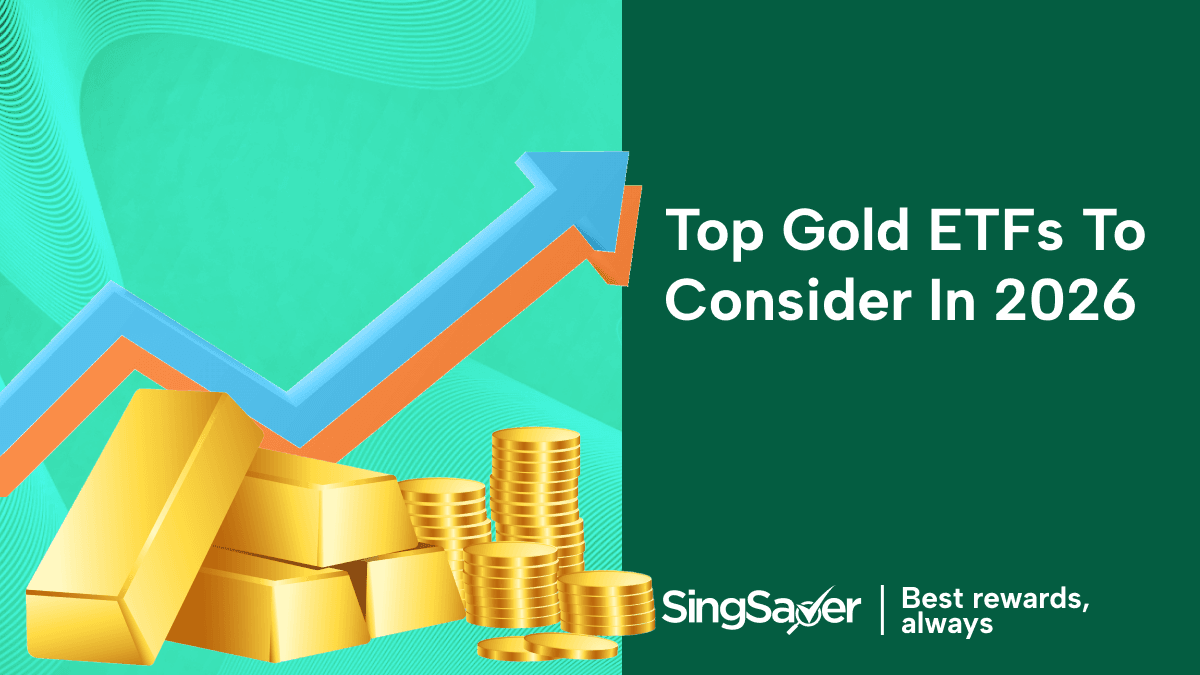
The Best Gold ETFs For Singapore Investors
Gold is attracting attention as a potential hedge against market volatility and inflation in 2025. Let's explore how investors in Singapore can get in on the action with gold ETFs. Gold prices are soaring, recently surpassing the $3,000 per ounce mark, fueling investor interest in using it as a hedge against inflation and economic uncertainty. This surge makes it a good time to consider gold ETFs as part of a diversified investment strategy.

How to Invest in ETFs: A Guide for Beginners
Exchange Traded Funds (ETFs) have become a popular investment vehicle. Find out how to invest in ETFs, how they work and what ETFs are available for trading in Singapore.

Options Trading for Beginners in Singapore: Complete 2025 Guide

CFDs: What Are They And How Do You Trade CFDs?
Contact of Difference (CFD) trading is becoming increasingly popular among investors as it allows you to speculate on the underlying asset's future prices without owning it. A CFD is a derivative that allows you to speculate on the future prices of an underlying asset and make big gains from it. But it’s also extremely risky, and more often than not, traders lose a lot of money.
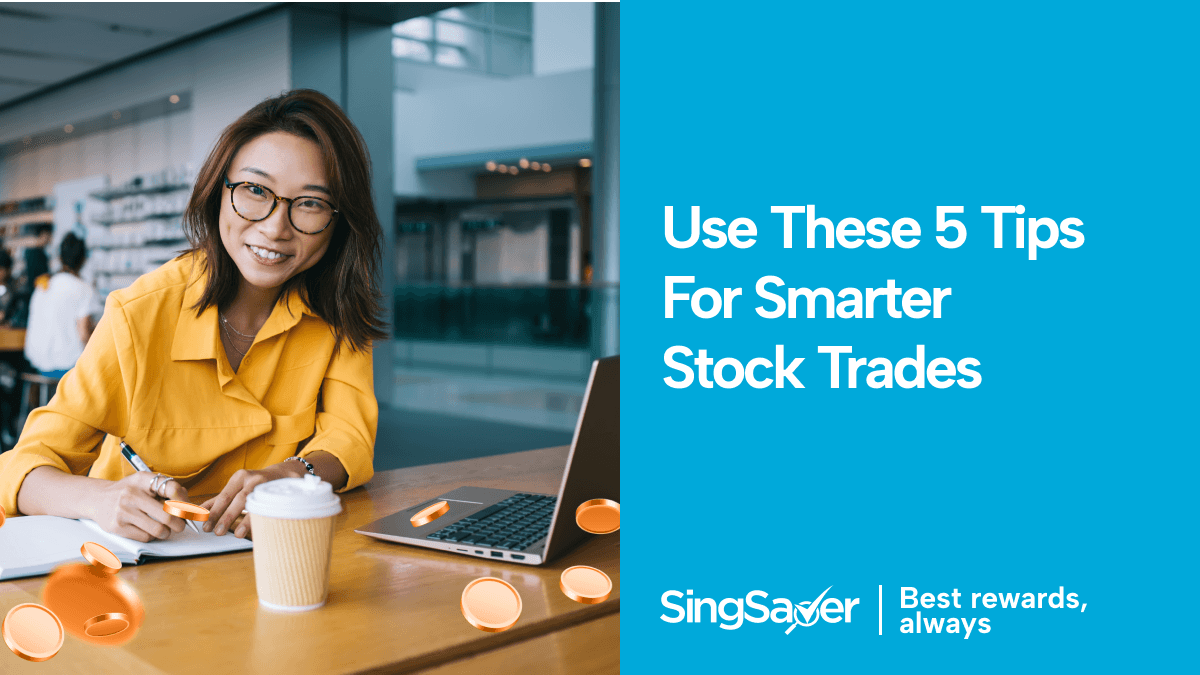
From Good to Great: 5 Habits for Smarter Stock Trades
Looking to improve your US stock trades? Follow these five advanced tips from moomoo to help bring your trading to the next level.
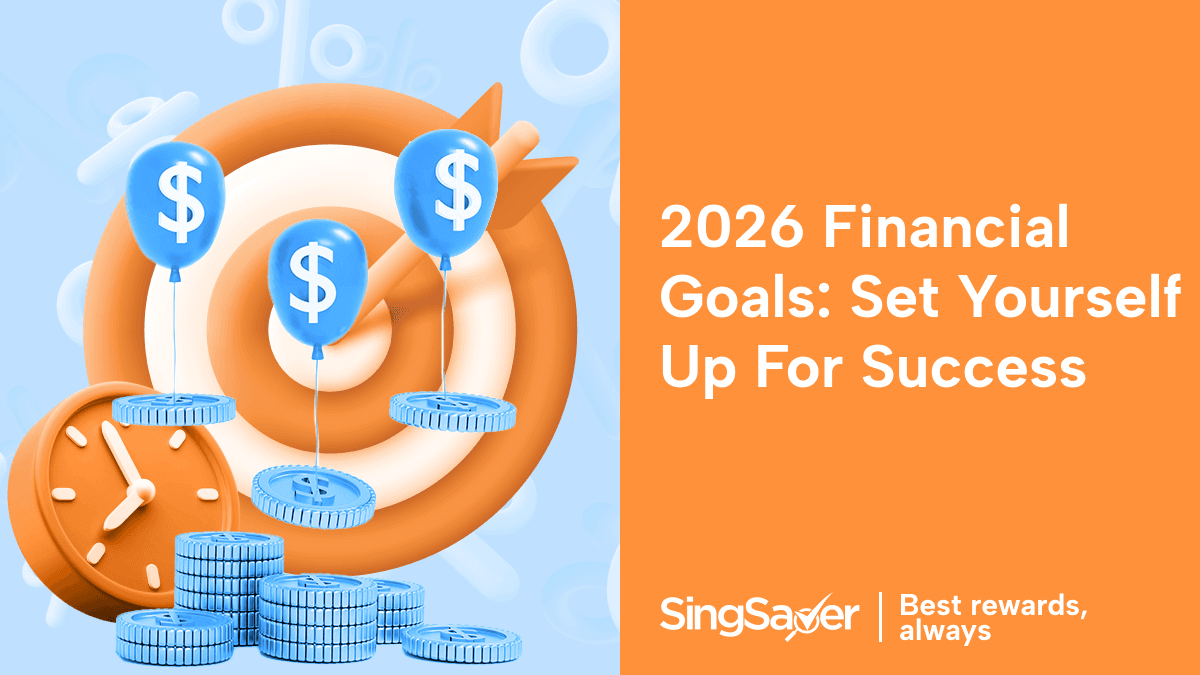
A Step-by-Step Guide to Financial Planning in Singapore
Creating a solid financial plan is like mapping out your route to financial success. It's about understanding where you are now, where you want to be, and how you'll get there. This guide provides a step-by-step approach to financial planning, with a focus on strategies and resources relevant to Singaporeans.
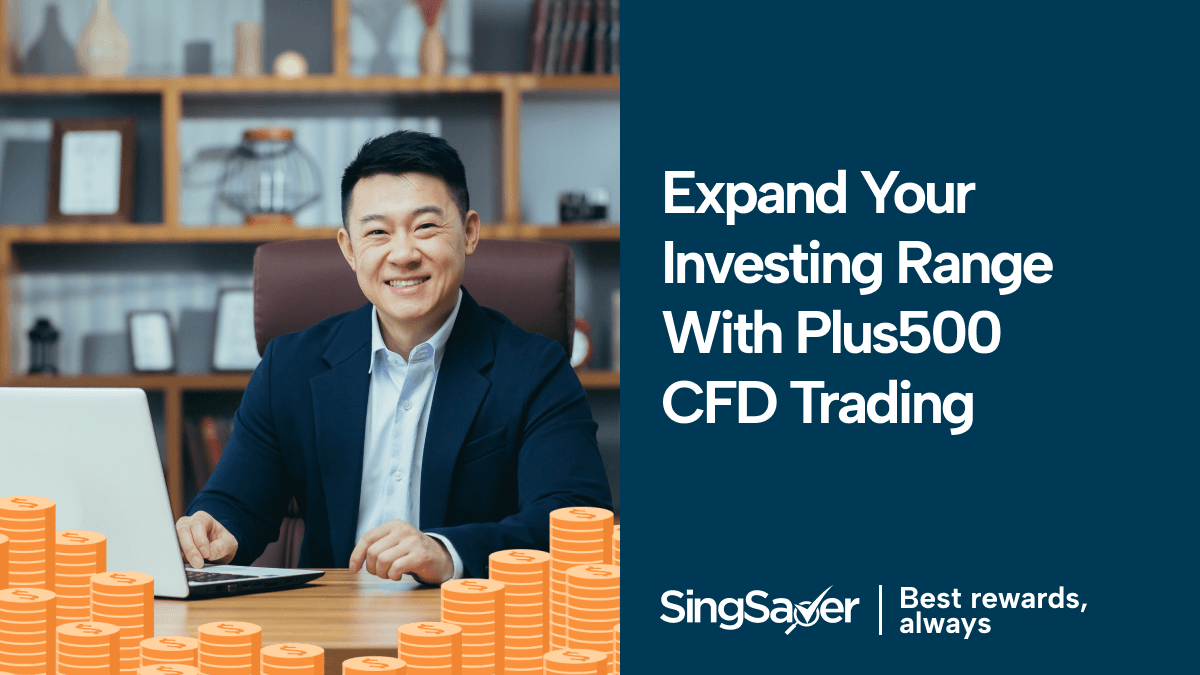
Thinking of Giving CFD Trading a Go? Here’s Why Plus500 Should Be Your Go-to Trading Platform
Looking to broaden your market exposure with CFDs? Picking the right trading platform is crucial. Here’s why Plus500 makes for the ideal partner to support your foray into CFD trading.
After-Hours Trading in Singapore: What It Is and How to Trade After the Market Closes
Trading after hours gives investors greater flexibility and access to global markets — but it also comes with important risks to understand.
Stock Market Crash? What to Do and How to Prepare for An Eventual Crash
A stock market crash involves a sudden, sharp decline in stock prices. While unsettling, understanding how to prepare and react is key. This guide equips Singaporean investors with strategies to navigate downturns and build long-term financial resilience.
What Is Margin Trading and How Does It Work in Singapore?
Here’s everything you need to know about margin trading in Singapore.
Franchising in Singapore: Advantages and Disadvantages
Thinking about becoming a franchisee or franchisor? Here’s what you need to know about the perks and pitfalls of franchising — so you can make the right move for your business in Singapore.
How to Start Day Trading: Understanding the Basics, Risks, and Strategies
Day trading involves rapid buy-sell actions within hours; learn essential strategies and risk management to navigate this dynamic market effectively.
Overview of Singapore's top Forex trading platforms
To find the best Forex brokers in Singapore, we created a list of all MAS-authorized brokers, then ranked them by trustworthiness and overall quality, considering factors like fees, platforms, customer support, and available instruments.
Here’s our list of the top Forex brokers in Singapore:
-
moomoo SG: Known for its user-friendly mobile app and commission-free trading on stocks.
-
CMC Markets: Well-established global broker with a wide range of educational resources and advanced trading tools.
-
FOREX.com: Comprehensive platform with diverse markets, including Forex, indices, and commodities.
-
ProsperUs by CGS-CIMB: Competitive trading rates and access to Singaporean and Malaysian markets.
-
Saxo Markets: Premium trading experience with sophisticated platforms and research tools.
-
IG: Global leader in Forex trading with a wide range of currency pairs and excellent customer support.
-
OANDA: Reliable and transparent platform with competitive spreads and advanced charting tools.
Forex trading explained
What is Forex trading?
Foreign currency exchange, better known as Forex, is probably not as complicated as it is made out to be. Akin to how you would wait for the best exchange rates at a money changer before swapping your SGD to something else, Forex trading involves trading currencies at the optimal price to turn a profit.
However, instead of just exchanging currency for travel, Forex traders buy and sell currency pairs like EUR/USD (Euro/US Dollar) with the aim of profiting from fluctuations in their relative value. These fluctuations are influenced by a multitude of factors, including global economic conditions, geopolitical events, and even central bank announcements.
All Forex trading platforms offered to Singaporean investors are regulated by the Monetary Authority of Singapore (MAS) to help ensure fair practices and protect traders' interests.
How does Forex trading work?
Forex trading requires you to concurrently buy one currency and sell another via a broker. Essentially, what you’re doing is hedging against the strength of an entire nation’s economy instead of a single company a la the stock market.
In order to do that, currencies are paired. These are called exchange rate pairs (e.g. EUR/USD), where the first currency in the pair is called the "base currency," and the second is the "quote currency”. When you trade a currency pair, you're essentially speculating on whether the base currency will strengthen or weaken against the quote currency.
For every currency pair, brokers quote two prices: the bid price (the price at which they'll buy the base currency from you) and the ask price (the price at which they'll sell the base currency to you). The difference between these two prices is called the "spread," and it represents the broker's profit.
Currencies are traded in standardised units called "lots." A standard lot size typically represents 100,000 units of the base currency. However, Forex trading platforms also offer mini-lots (10,000 units) and micro-lots (1,000 units) to accommodate traders with different capital levels.
You can control a larger position with a smaller amount of capital by imposing leverage. For example, with 100:1 leverage, you can control a S$100,000 position with just S$1,000. That said, leverage becomes a double-edged sword: while leverage can magnify your profits, it can also amplify your losses—use it cautiously.
When monitoring the potential profit and loss of your currency pair, the smallest price movement that it can make is recorded as a percentage in point, or pips. For most pairs, a pip is equivalent to 0.0001%.
With these fundamental concepts in mind, it's crucial to select a reliable platform for your Forex trading journey. To navigate the complexities of Forex trading and mitigate risks, it's best to choose a trustworthy and regulated Singapore Forex broker. MAS regulation ensures that your broker adheres to strict financial standards and safeguards your funds.
Why do investors like it?
Firstly, Forex trading can be performed 24 hours a day, 5 days a week because currencies are traded across all financial centres in the world. As one major market closes, another opens, ensuring continuous trading opportunities. You can participate in the Forex market whenever it suits you, regardless of their schedules or time zones.
Furthermore, the Forex market is extremely large, closing at US$11.3 trillion (S$15.37 trillion) as by the end of 2023. This immense size translates to greater stability and less susceptibility to manipulation by individual entities. Compared to other financial markets, the Forex market's sheer scale offers more opportunities for traders of all sizes to participate and potentially profit.
Lastly, the high liquidity from the colossal trading activity lets traders enter and exit positions with ease. High liquidity means there are always buyers and sellers available, ensuring that you can quickly execute trades at the desired price. This is particularly important for traders who employ short-term strategies or need to react quickly to market events.
Pros and cons of forex trading
Pros
You can trade at almost any day and time of the week
Liquidity is high, allowing you to enter and exit positions easily
Prices cannot be controlled by a single institution for extended periods of time
It’s easy to get started, with brokers offering different types of forex trading accounts
Leveraging on Forex trading allows you to control large positions and potentially increase your return
Cons
But leverage is a double-edged sword, especially if you don’t fully understand it and don’t have sufficient capital to begin with
The learning curve is steep, requiring months or even years to study and develop a trading system
Volatility in the Forex market is high, creating sharp price hikes and drops in a short span of time
Choosing a Forex broker
Regulatory compliance
Before you start Forex trading in Singapore, ensure your chosen broker is regulated by the Monetary Authority of Singapore (MAS). This is non-negotiable. MAS regulation provides a safety net, ensuring your broker adheres to strict financial standards and safeguards your funds.
Always verify a broker's regulatory status before depositing funds.
Trading costs and fees
Forex brokers generate revenue through various fees, including spreads, commissions, and overnight financing charges. Look for brokers offering tight spreads, especially if you're a frequent trader.
moomoo SG, for instance, is known for its competitive spreads and commission-free trading on certain instruments.
Platform & speed
Online brokerages with a user-friendly and reliable trading platform will make for a smooth Forex trading experience. Platform responsiveness, charting tools, and order execution speed will inform better trading strategies, while having a mobile app version will make trading more accessible.
FOREX.com and Saxo Markets are known for their sophisticated platforms with advanced charting and analysis features. If you prefer trading on the go, moomoo SG provides a highly-rated mobile app for convenient access to the Forex market.
Forex pair variety and leverage options
Different brokers offer different selections of currency pairs and leverage options. If you're interested in trading a wide range of major, minor, and exotic pairs, IG and OANDA provide extensive selections.
When it comes to leverage, assess your risk tolerance carefully. Higher leverage can magnify profits but also increase potential losses. ProsperUs by CGS-CIMB offers flexible leverage options to cater to different trading styles and risk appetites.
Need some help with Forex?
We're here to help you make sense of Forex trading and guide you to the best brokers in Singapore.
Frequently asked questions
- There’s an abundance of learning materials and research tools to get you off the ground quickly.
- The cost is low because brokers don’t charge commission or brokerage fees. They use spreads instead: a built-in cost referring to the difference between the bid and ask price of currencies.
- There’s a variety of currency pairs that can be traded. A total of 28 pairs can be created just from the 8 major currencies alone. Additionally, commodities such as gold and silver can be paired with currencies and traded in the same manner.
- Checking the MAS website: The MAS maintains a register of licensed financial institutions on its website. You can search for the broker's name on their website to confirm their regulatory status.
- Looking for the license information on the broker's website: Regulated brokers typically display their MAS license number and details on their website, often in the "About Us" or "Regulatory Information" section.
Forex trading is good for its accessibility, but whether it is a suitable vehicle or not depends on your risk appetite and knowledge. For starters, the market is open almost 24/7. It’s naturally tailored to your schedule and as a result, various trading styles can be applied. Contrary to popular belief, you don’t need to stare at charts for an entire day lying in wait for large price shifts.
Additionally, Forex trading is an excellent way to diversify your investment portfolio. The barrier to entry is low because:
Firstly, you’ll need to select a Forex broker. The rule of the thumb is to pick a credible one that offers low spreads. Sign up for an account and start demo trading for several months to a year before you invest actual money. Demo trading lets you familiarise yourself with the broker’s features and tools along with the unique characteristics of the currency pairs that you would like to trade.
More importantly, demo trading lets you apply what you have learned and experiment with different trading styles or systems at no cost. Becoming proficient in Forex trading takes a considerable amount of time and patience because of its steep learning curve and the relatively high risk involved.
You can verify a Forex broker's MAS regulation by:
Forex trading is incredibly lucrative due to its large market size and how flexible it is. Whether you’re a long-term trader or short seller, night owl or early bird, opportunities to turn a profit are plentiful. However, keep in mind that forex trading is not a get-rich-quick-scheme.
Although it’s possible to hit the jackpot with a high-leverage hundred-pip trade, a large amount of time will be spent studying and researching in order to develop an efficient trading plan instead. A sufficient amount of capital needs to be invested too, even though some brokers allow you to open an account with a deposit of less than S$100.




